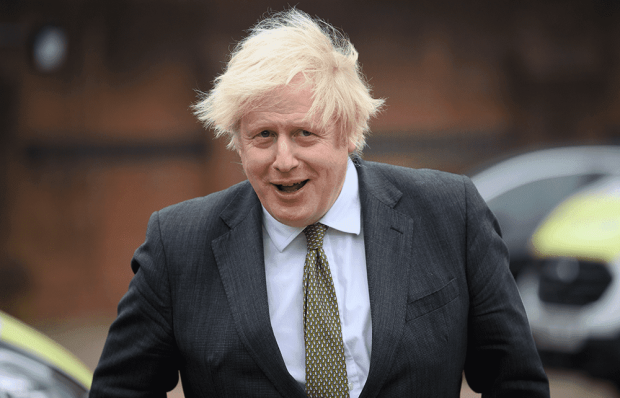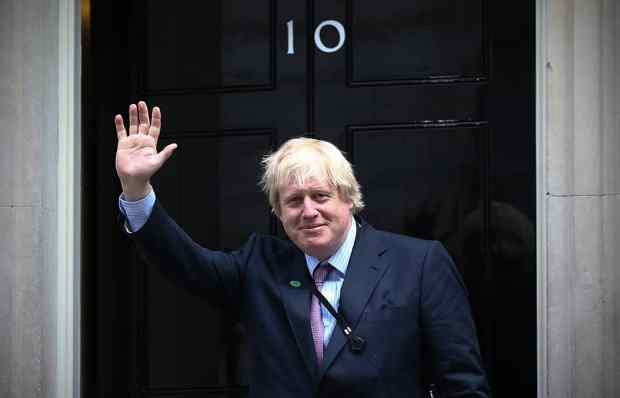Italy’s to-do list
Sir: You would expect a long letter of rebuttal by a piqued senior diplomat in response to the many barbs that Nicholas Farrell packed into his piece about Italy (‘The dying man of Europe’, 25 October). Among the most painful ones were that Italy is ‘almost doomed’ and parts of it are ‘hopeless’, which are far too simplistic statements. Mr Farrell is remarkably complacent in his negative bias. But beyond the sea of clichés, the piece offers a useful to-do list. So I will limit myself to a brief comment on its title, highlighting some details not mentioned in the article: if decline is the issue, there are plenty of people in Italy who are trying to tackle it — among them a new wave of Italian politicians. Brought up as the ‘Erasmus generation’, they are tackling the many complex challenges my country is facing. They have strong Europhile ideals and great determination. And as the results of the recent European elections show, they have strong support from the Italian voters. Pasquale Q. Terracciano Italian ambassador to the United Kingdom London W1
Correct form
Sir: Mr Forsyth from Giggleswick claims that my ‘nonsense about … motoring offences is not part of the General Medical Council requirement’ (Letters, 25 October). He’s wrong and doesn’t seem to have looked at the forms he loves. The Fitness to Practise statement sent to me by the GMC asks for details of ‘any road traffic convictions’ and ‘fixed penalty notices’. They are the first two items on the list. More importantly, Mr Forsyth misses the point. My complaint is that the GMCs revalidation scheme does not check that doctors are up to date and fit to practise. It checks they can fill in forms. Harold Shipman would have sailed through. Vernon Coleman London SW1
In defence of the GMC
Sir: Vernon Coleman’s claim (18 October) that revalidation, the process for checking that doctors are competent, ‘will result in a massive deterioration in the quality of medical care’ is completely at odds with our experience. It has been less than two years since we introduced revalidation, but already there are signs that it is making a positive contribution to patient care. Every organisation providing health care must now make sure that their doctors have the knowledge to treat patients and must provide them with appropriate support to maintain and improve their practice. Employers tell us this is making a real difference. For some, this will be the first time they have had an annual appraisal. But the idea that an airline would not bother to check its pilots would be unthinkable — so why should doctors not be subject to a similar process? It is also a process which provides doctors with an opportunity to reflect on their practice and on feedback from their colleagues and their patients. Revalidation has not been put in place to create barriers for locums, but we believe all doctors should be able to show they are providing safe and effective care. These are early days and we will adapt the model as we learn from experience. The capacity of doctors to do good is greater than it has ever been, but so too is their capacity to do harm. A system that is committed to promoting professionalism, encouraging self reflection and ensuring that problems are spotted and dealt with early is surely worth striving for. Niall Dickson Chief Executive and Registrar, General Medical Council
Upper lip fashions
Sir: Following on from Francis Osborn’s letter (25 October), the wearing of moustaches in the British army had already come into and gone out of fashion before 1914. Byron Farwell in his excellent book For Queen and Country quotes a regimental order of 11 May 1801 for the 13th Foot (Somerset Light Infantry): ‘Such few officers as have adopted moustaches are desired to discontinue them as they carry an appearance not only of affected singularity but of want of cleanliness.’ Soon after, moustaches became de rigueur for cavalry officers; the infantry followed suit in 1854. By 1896, Queen’s Regulations made moustaches obligatory for all officers. In the 1900s the Commandant of Staff College dismissed ‘a clever and gallant officer who foolishly persisted in refusing to grow a moustache’. Despite the sub-nasal forestation coming in and out of fashion in the military in more recent times, I have never felt the need to sport one. Colonel Martyn Forgrave Kingham, Oxfordshire
Poster children
Sir: After five years of the kind of dumbed-down education Mary Wakefield describes (‘Why are kids making posters for their GCSEs?’, 25 October), I moved to an independent school on a full scholarship for sixth form. After two months there, I can clearly see the gulf between the international pupils’ educations and my own; in Russia, for example, English is learnt from the age of four, and a third language is started before they turn 11. In Britain, however, we seem to specialise in colouring in. In the global race for success, how can Britain hope to compete when educational fads rule the roost and learning is sidelined? William Urukalo Knaresborough, North Yorkshire
Got something to add? Join the discussion and comment below.
Get 10 issues for just $10
Subscribe to The Spectator Australia today for the next 10 magazine issues, plus full online access, for just $10.
You might disagree with half of it, but you’ll enjoy reading all of it. Try your first month for free, then just $2 a week for the remainder of your first year.













Comments
Don't miss out
Join the conversation with other Spectator Australia readers. Subscribe to leave a comment.
SUBSCRIBEAlready a subscriber? Log in